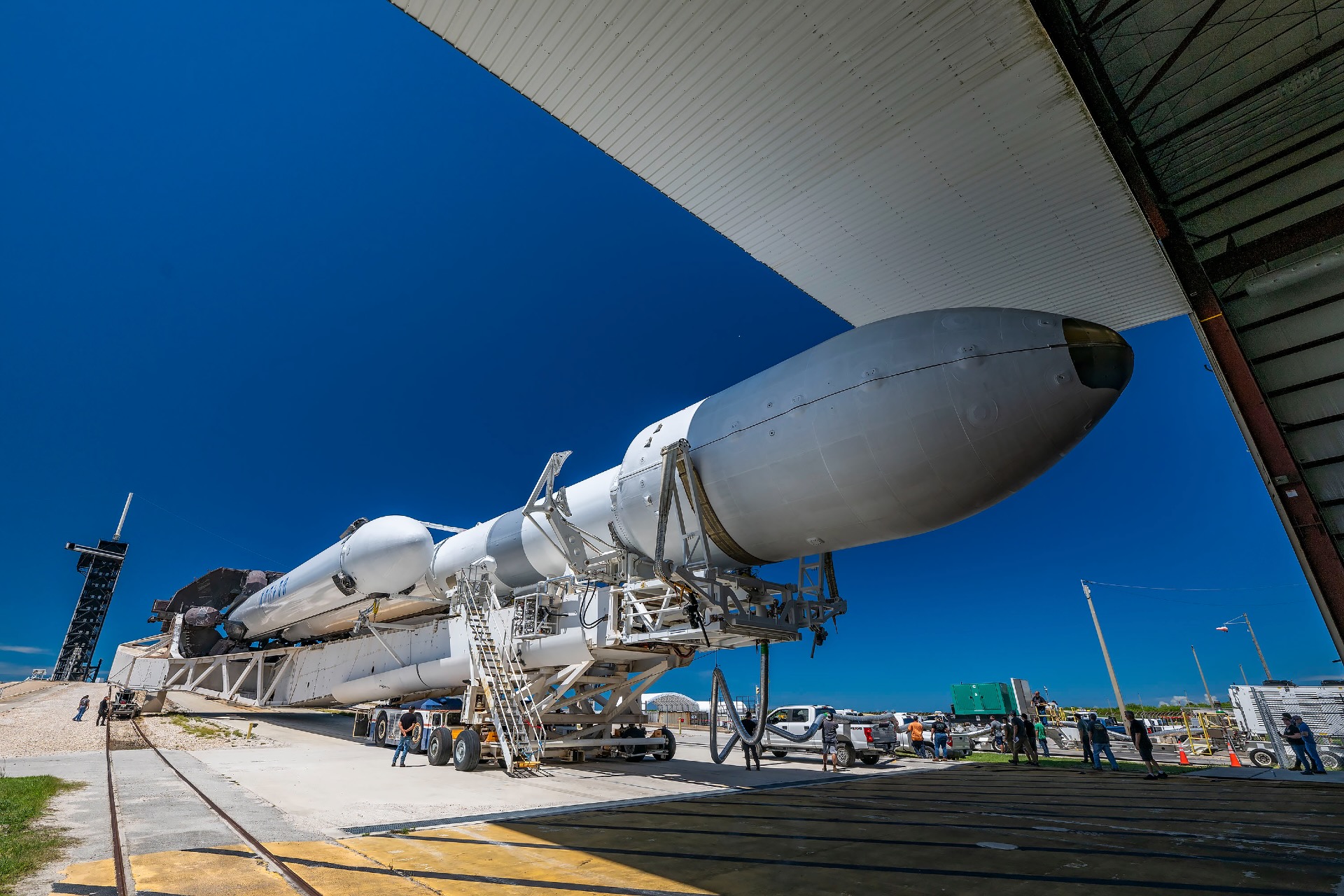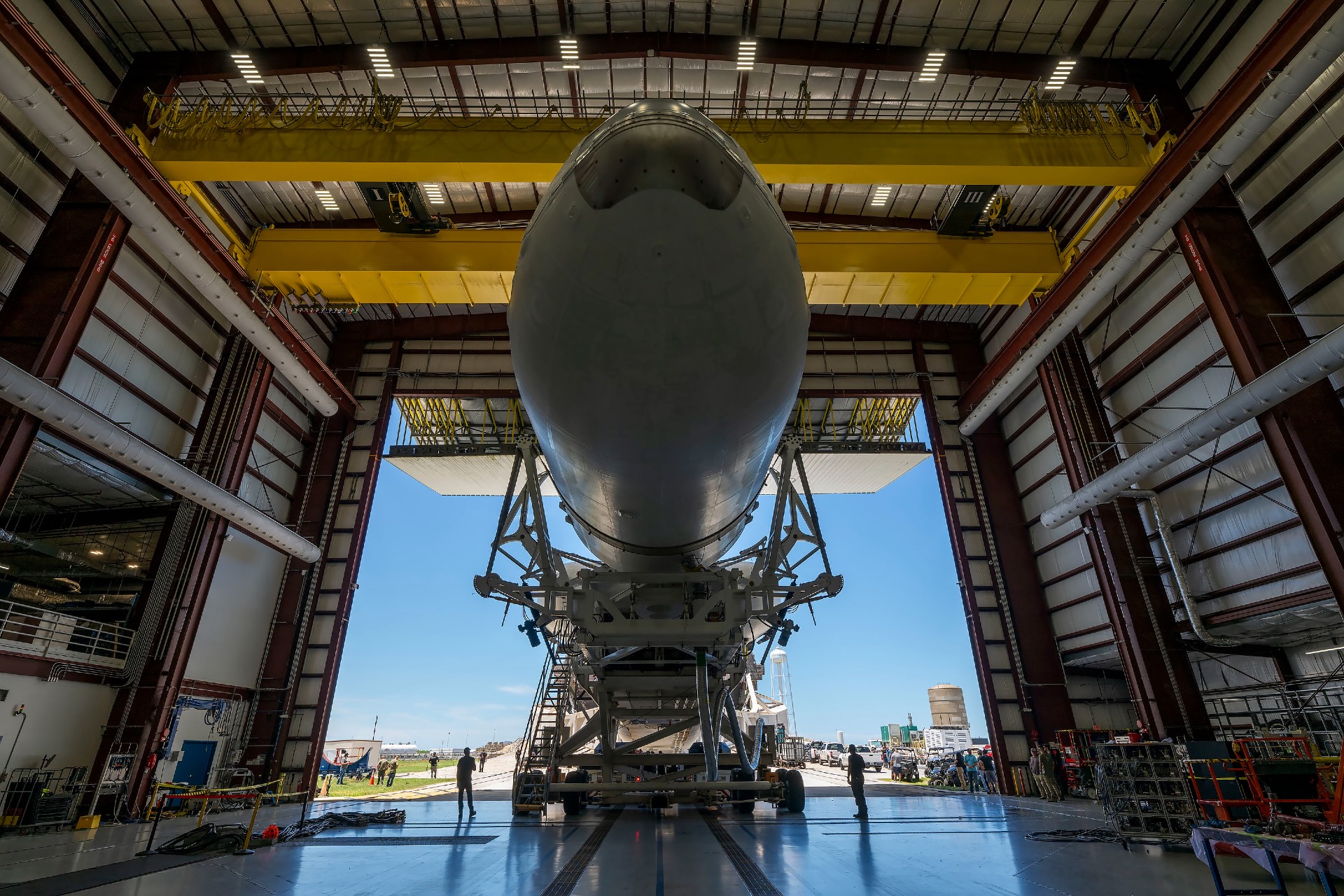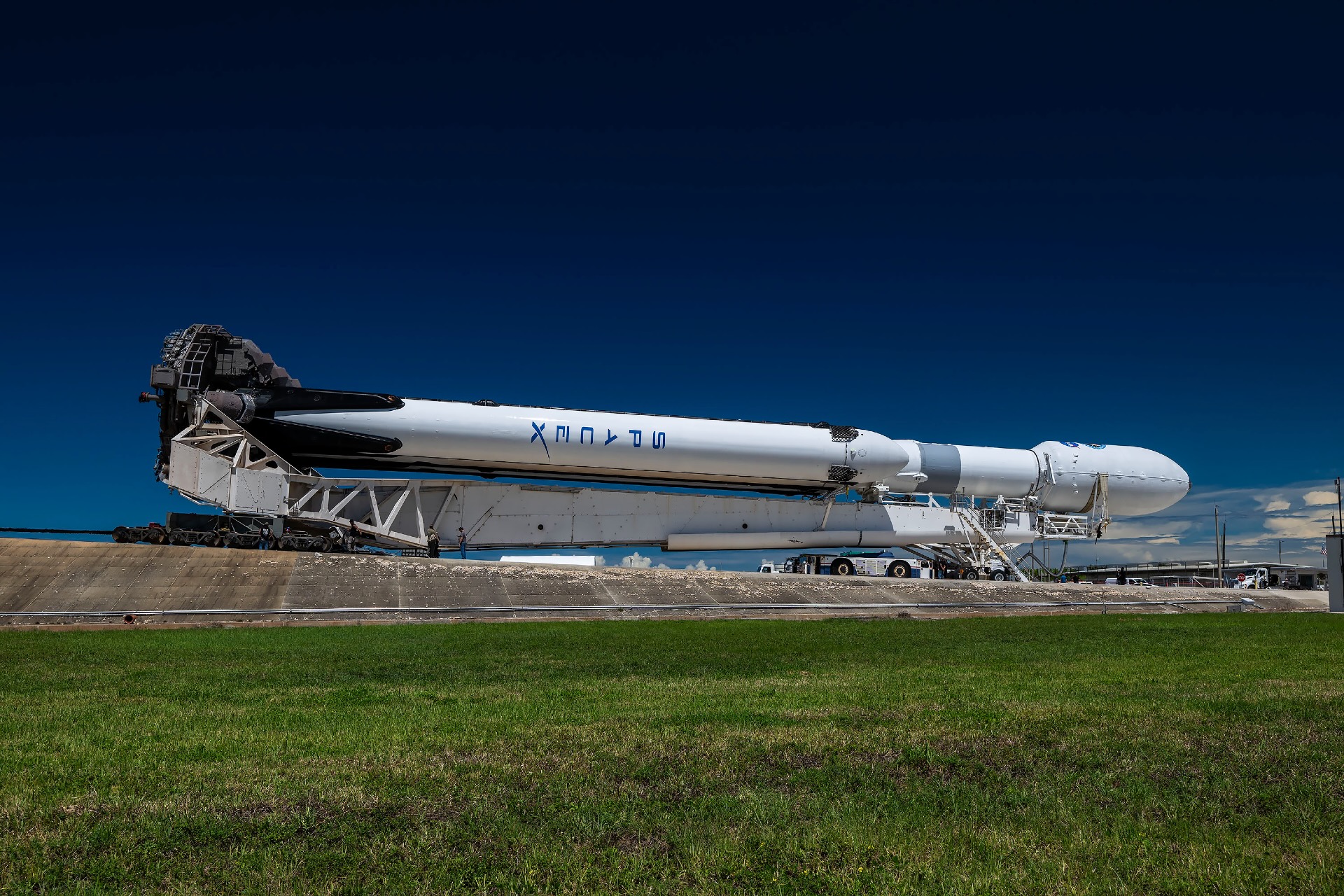SpaceX rolls Falcon Heavy rocket out to pad for GOES-U weather satellite launch (photos)

SpaceX's Falcon Heavy rocket is poised for its 10th-ever liftoff.
SpaceX rolled the Falcon Heavy and its payload, the next-gen GOES-U weather satellite, out to Pad 39A at NASA's Kennedy Space Center in Florida on Monday (June 24).
If all goes according to plan, the powerful rocket will launch on Tuesday (June 25), during a two-hour window that opens at 5:16 p.m. EDT (2116 GMT). That's dependent on Mother Nature cooperating, however, which is far from guaranteed; the latest forecasts predict just a 30% of weather good enough to allow a launch.
Whenever GOES-U lifts off, you can watch it here on Space.com.
GOES-U will be the fourth and final satellite in the U.S. National Oceanic and Atmospheric Administration's (NOAA) Geostationary Operational Environmental Satellites (GOES)-R series.
GOES-R is "the Western Hemisphere's most sophisticated weather-observing and environmental monitoring system," NOAA officials wrote in a description of the network.
"The GOES-R Series provides advanced imagery and atmospheric measurements, real-time mapping of lightning activity and space weather observations," they added.
Breaking space news, the latest updates on rocket launches, skywatching events and more!
The Falcon Heavy is the second-most powerful rocket in operation today, after NASA's Space Launch System (though SpaceX's massive Starship, which is still in the test-flight phase, will take the crown when it comes online).
The Falcon Heavy debuted in February 2018, on a test flight that launched SpaceX founder and CEO Elon Musk's Tesla Roadster into orbit around the sun. It has flown eight more times since then, most recently in December 2023, when it sent the U.S. Space Force's robotic X-37B space plane into Earth orbit.

Michael Wall is a Senior Space Writer with Space.com and joined the team in 2010. He primarily covers exoplanets, spaceflight and military space, but has been known to dabble in the space art beat. His book about the search for alien life, "Out There," was published on Nov. 13, 2018. Before becoming a science writer, Michael worked as a herpetologist and wildlife biologist. He has a Ph.D. in evolutionary biology from the University of Sydney, Australia, a bachelor's degree from the University of Arizona, and a graduate certificate in science writing from the University of California, Santa Cruz. To find out what his latest project is, you can follow Michael on Twitter.


